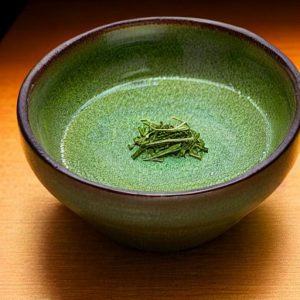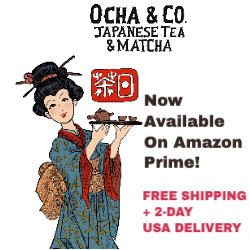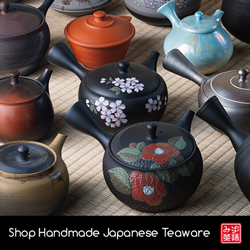
There are more than a hundred tea cultivars in Japan, with new ones appearing every year.
But only a few are used extensively.
I looked at the data of cultivated area from 2021 from the Ministry of Agriculture, Forestry and Fisheries of Japan (農林水産省).
Here’s the ranking:
#5 Sayamakaori
This cultivar amounts to just 2.3% of the tea field in Japan.
It offers a high yield and cold weather resistance.
Because Sayamakaori is high in catechins, it can easily become bitter and astringent if infused for too long or at a high temperature.
#4 Okumidori
Okumidori is a late budding cultivar that is often used in matcha and gyokuro.
It reaches 3.4% of cultivation by area in Japan.
Another benefit is that it pairs well with Yabukita (the most popular cultivar). Hence, it’s commonly used in tea blends.
As a sencha, it has a balanced and refreshing taste.
#3 Saemidori
With 4.3% of tea cultivation area, Saemidori takes the third place in Japan.
It has a higher concentration of amino acids than the other cultivars of this list.
That’s why it’s a good choice for shaded teas such as gyokuro.
It’s not to be confused with Samidori, which by the way stands at sixth place with an area of 0.7%.
#2 Yutakamidori
Yutakamidori isn’t cultivated as much in most Japanese regions.
But it is takes second place in Kagoshima, which has a large area dedicated to it. In Japan it accounts for 6.2%.
It’s an early budding cultivar, specially suited for the southern regions of Japan.
This cultivar is mostly sold as a fukamushi sencha.
#1 Yabukita
With 67.6% of the tea field area in Japan, it’s number one by far.
However, Yabukita used to be at 75% in 2010.
It seems that it’s slowly becoming a little less dominant.
Yabukita represents the classic taste and aroma of Japanese tea.
If you’ve tasted Japanese tea before, there’s a high chance that it was made with this cultivar.
By the way, all of the cultivars from this list except for Yutakamidori came from Yabukita.
Have you tasted this five cultivars?





July 11, 2023
Nice recounting of popularcultivars Thanks
July 11, 2023
Hi Ken
Thanks for reading.
July 12, 2023
Hi Ricardo, thank you for your relentless efforts to share valuable info. What about other less popular gokou and hikari? Thanks.
July 12, 2023
Hi Hrach
Thank you for your comment.
Gokou and Ujihikari are mostly cultivated in Kyoto prefecture. I have written posts for them as well.
https://www.myjapanesegreentea.com/gokou